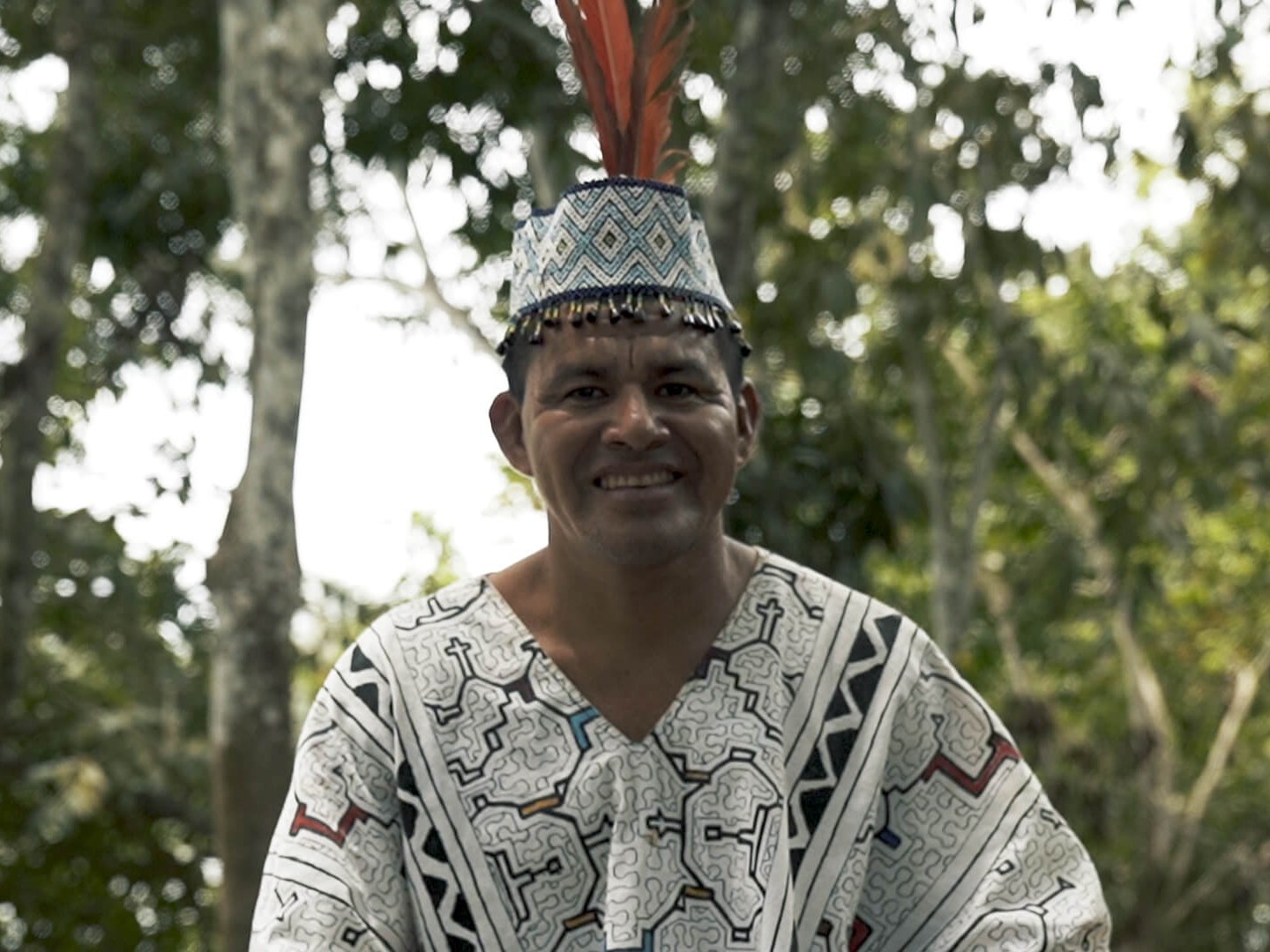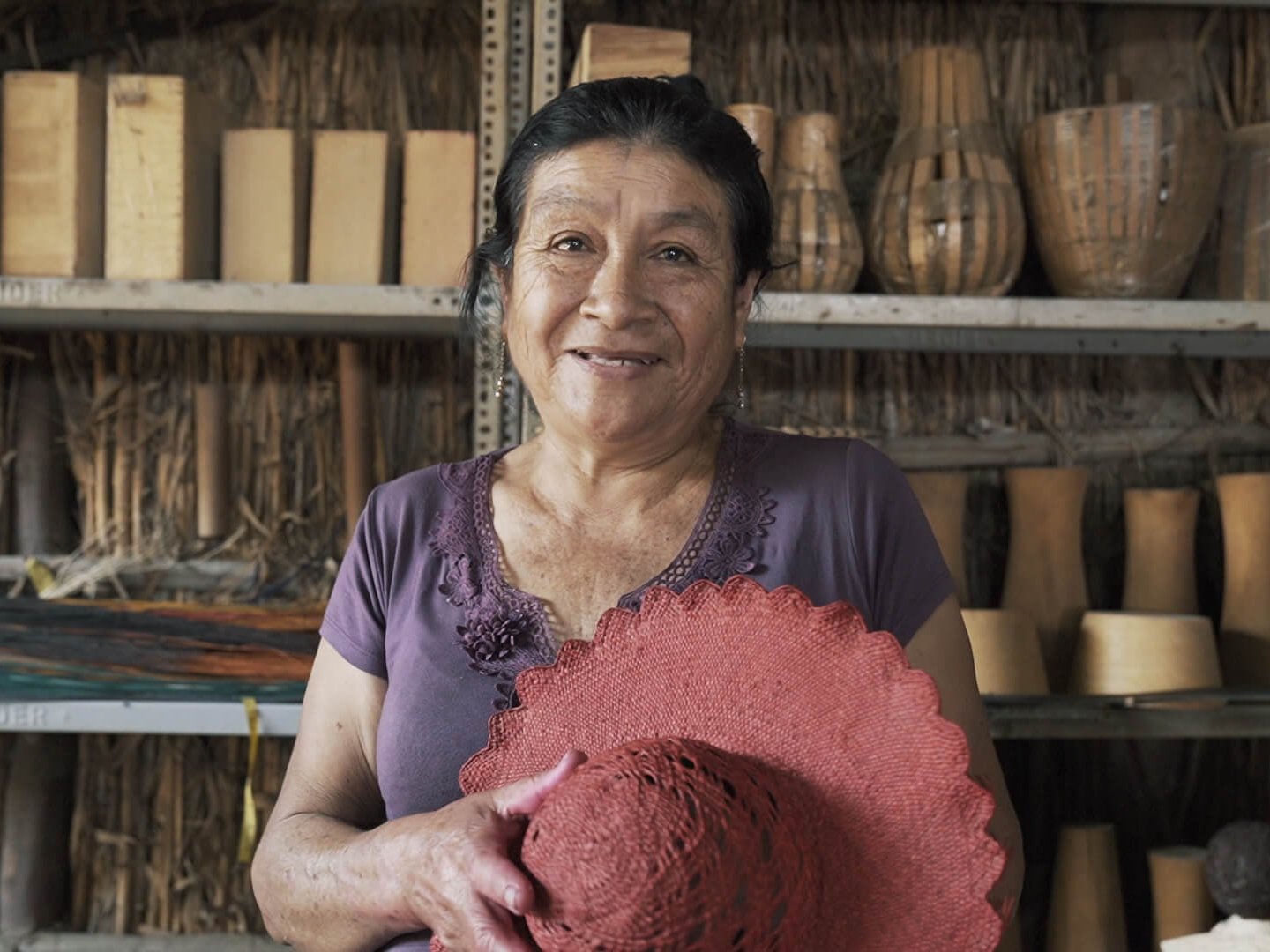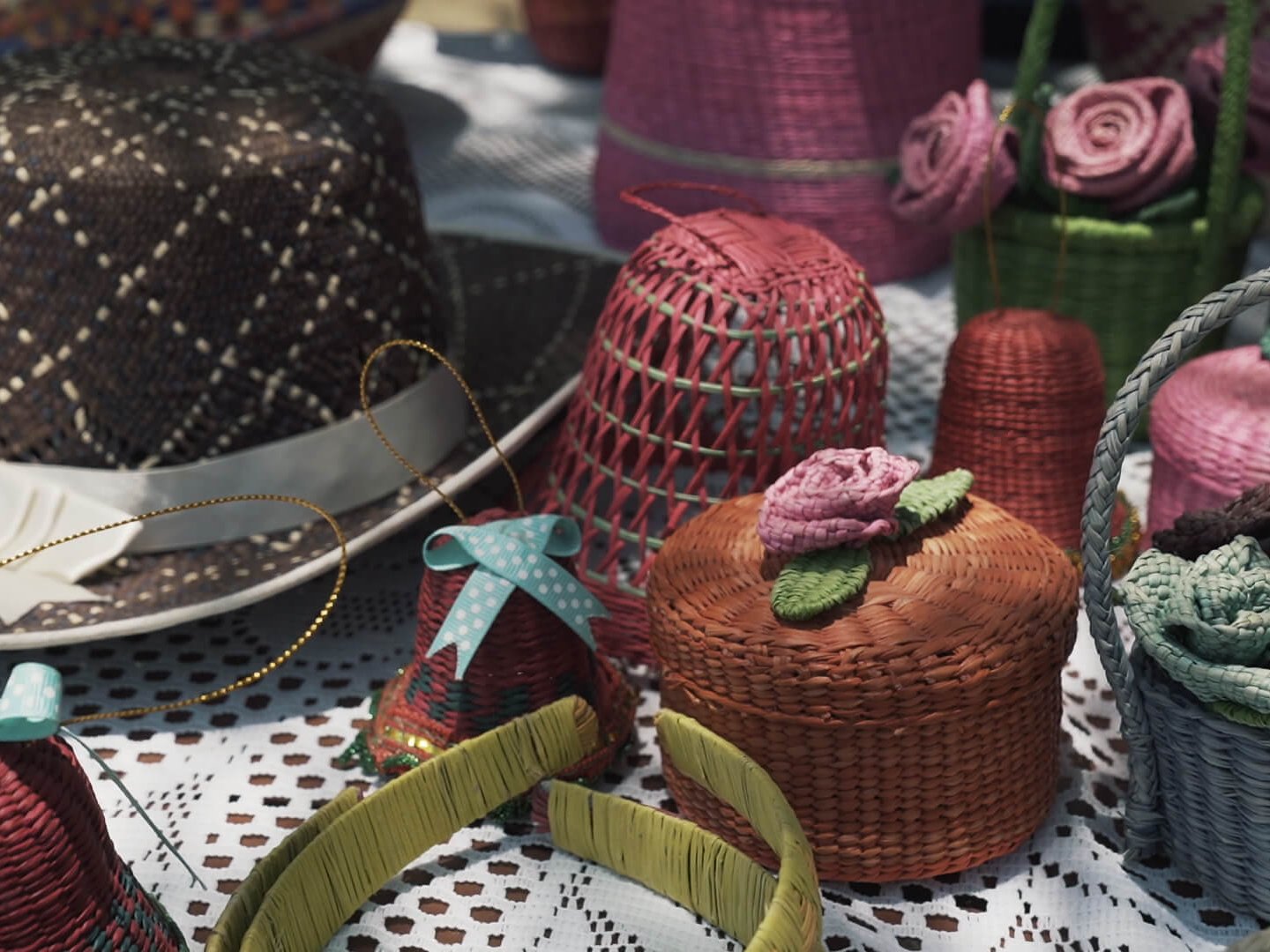Leer en Español.
Our community’s dream is to develop an experiential tourism project to exchange experiences and show the Shipibo traditions and culture.
M y name is Teddy Cairuna and I am a leader of the Shipibo-Conibo indigenous community in the jungle of Peru. I live with my wife and four children, and I support the local authorities of the Nuevo Sapasoa area on issues related to management and territorial governance.
Our community’s dream is to develop an experiential tourism project to exchange experiences and show the Shipibo traditions and culture. We want to welcome tourists, live with them, and show them how to sew and fish. So one of our most important activities is to protect our territory and our forests to prevent outsiders and foreigners from taking advantage and destroying our land.
We have a problem with deforestation and environmental damage. There are many communities that engage in illegal logging. We want to set an example to these communities by being a protector of the forest as it protects us and there is everything we need here – materials for construction, food, medicine, and clean air. We feel that we can communicate with the forest. For example, when we want to use a specific tree bark to cure a disease, we ask permission, we talk to the forest, we ask for its strength to help us heal.
But we lack basic services such as clean drinking water. We don’t even consume treated water, we only have access to water from the lake, which is stagnant and causes diseases such as parasites in our children.

We are very far away from the city and it makes us feel that we don’t have support, we feel forgotten and alone in the jungle.
We also lack internet access and because of this we can’t benefit from online education as nowadays schooling is all done online. We don’t get a phone signal, so we can’t communicate quickly with others. During these times there are emergencies so this is a problem for us. There is another community two hours away that we get some signal from, but you have to climb the trees or find ways to climb to the roofs of houses. We are very far away from the city and it makes us feel that we don’t have support, we feel forgotten and alone in the jungle.
An additional problem is that the women that do crafts in the community don´t have an income anymore because of the COVID-19 pandemic. The women can’t go out to the city and tourists can’t come to our community. The government helped us over the years by giving us economic incentives to develop different activities such as the construction of a small lodge for tourists, a house where the women can gather and do crafts together, solar panels and a water tank, but this isn’t working anymore.

We want to improve our infrastructure and to improve the guest houses for tourists. Through friends I learned how to create a Facebook page and a WhatsApp group. This is why, in recent years, we have received tourists. But the rest of the community don’t know how to do this. We don’t have a website for the community and we don’t have proper access to the internet. But we know that we have the ability to learn if we had training.
We would like to have the option of online bookings and learn how to make a marketing plan. It would help us to know how many tourists will come each month and how much income this will represent. It could generate more jobs for women in the community who don’t have work because of the pandemic. We have plans to purchase equipment such as a laptop and a printer but we don’t know how to use them. This is what worries us. With training we would feel more self-sufficient, we wouldn’t feel like a forgotten or discriminated community.

Improving our infrastructure and receiving training would allow us to maintain our culture, our songs, dances and other traditions that are being lost.
My daughter has a lot of dreams. She tells me that when she graduates high school she wants to apply to university. There are many teenagers that dream like her and that is why we are trying to find more alternatives for our children so they can leave the community and go to the city to continue their studies.
Improving our infrastructure and receiving training would allow us to maintain our culture, our songs, dances and other traditions that are being lost. In many communities young people feel ashamed of their mother tongue, Shipibo-Conibo. But lately we are seeing that our language is being used at universities, which makes us proud and we want young people to feel proud too. It would help us value and protect our community and our forest. We would be benefiting the whole world.

Lizeth Yarlequé is a documentary filmmaker, video journalist and producer from Peru. Her passion for developing stories that bring awareness to social, environmental and cultural topics has led her to film and produce projects for the broadcasters worldwide.
Her documentary ‘Two More Weeks’ about the pandemic in Peru won as Best Short Documentary at ‘ISA film festival’ in US in July 2020.
Photography by Lizeth Yarlequé.
For more on identity in a digital age, join our Facebook group.




